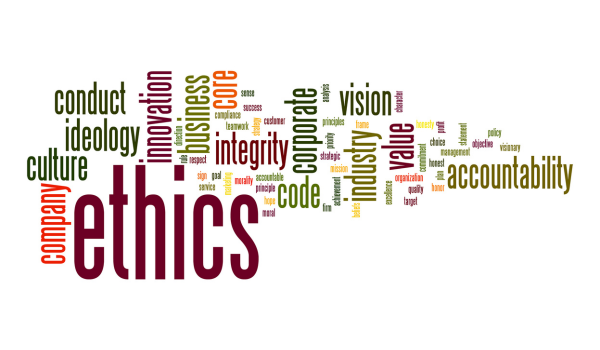
Posted on: 11/04/2024

This article will explore the major differences between business ethics and accountability, informing you how they work together to create a robust workplace.

Discover your Accountability Score and increase the probability of smashing your GOALS and Getting Sh!t Done!
By bringing a moral outlook to the operations, a company also ensures that it positively impacts its employees, the environment, and society at large. Following are some of the core principles of business ethics:
Personal responsibility is the hallmark of any trustworthy employee, whether in a junior position or management. It ranges from diligently performing what your job description says and completing the projects that have been assigned to you.
Similarly, openly accept your mistakes, learn from them, and discuss them with others to find a way out.
Consider this startling statistic: According to the World Economic Forum’s Global Gender Pay Gap Report, the world will spend 135 more years before it closes the gender pay gap.
Fairness is a fundamental aspect of business ethics that is all about treating everyone equally regardless of rank, race, religion, and political views. If a lower-level employee is expected to follow the standards of honesty and integrity, the CEO should also be held to the same standards.
A business doesn’t operate in isolation; it is part of society and connects with it on several levels. Whatever a business does, from manufacturing to delivery, has a tangible impact on society and the environment.
It’s important to recognize this impact and look for ways to mitigate ‘negative externalities,’ such as pollution, waste, and more. One way of doing this is to work directly with various communities, understand their issues, and invest in them to give them opportunities.
Accountability can be defined as an enforcing mechanism, ensuring that companies and their employees adhere to an ethical framework in their conduct. It is about holding businesses and employees responsible for their actions, a system that can be both internal and external.
Internal accountability involves performance reviews and analyses that determine a company’s progress toward specific goals. Similarly, it also includes the level of adherence to ethical principles.
To promote a culture of accountability, firms should have a special team to oversee ethical compliance and submit their proposals regularly. Companies should also enact whistle-blower-friendly policies that encourage employees to report ethical violations.
External accountability comes from outside actors like the government, regulatory authorities, and NGOs. The government passes regulations to make companies adhere to ethical standards regarding employee treatment, waste management, taxation, and much more.
Similarly, regulatory authorities and NGOs monitor companies to ensure business ethics and accountability standards are being followed.
Also, customers boycott brands that they think indulge in unethical practices and hurt their market value. It acts as a deterrent for companies to have ethical boundaries.
Following are some examples of how accountability plays out in a corporate context:
Business Ethics | Accountability | |
Definition | A set of moral codes and principles determining the right and wrong in a company’s conduct. | A system that ensures the ethical framework is being followed. |
Focus | Rules that guide decision-making | Consequences of actions |
Importance |
|
|
Examples |
|
|
Mechanisms | Internal:
External:
| Internal:
External:
|
Challenges |
|
|
Business ethics and accountability are two sides of the same coin, both being equally important to a thriving organization. However, it’s a tricky area that sometimes evades our previous knowledge and understanding. Therefore, it’s crucial to have thorough training on the subject, like the one offered by tickthoseboxes.
If you need assistance you can take a look at my accountability coaching packages or book an accountability assessment today.
Explore new opportunities in the corporate world like never before.
I was excited to join Tia Harmer on The Work in Progress: The Personal Productivity Science Insights Podcast! We dive deep into the science of goal setting and the power of accountability—two cornerstones of business and personal success.